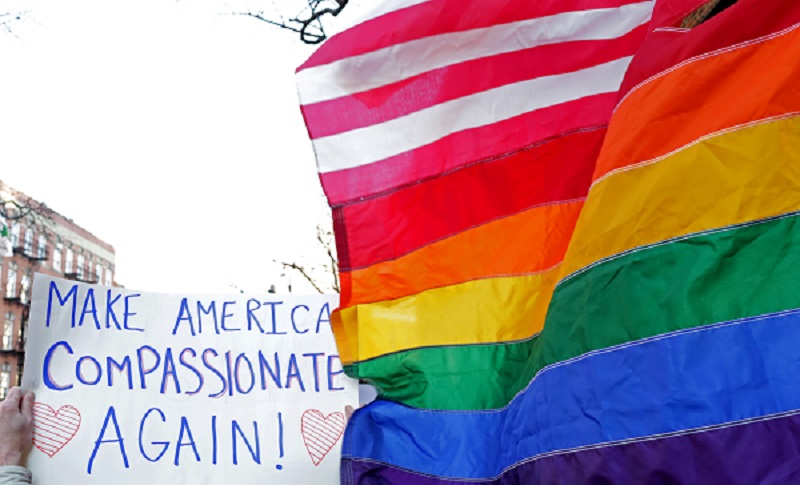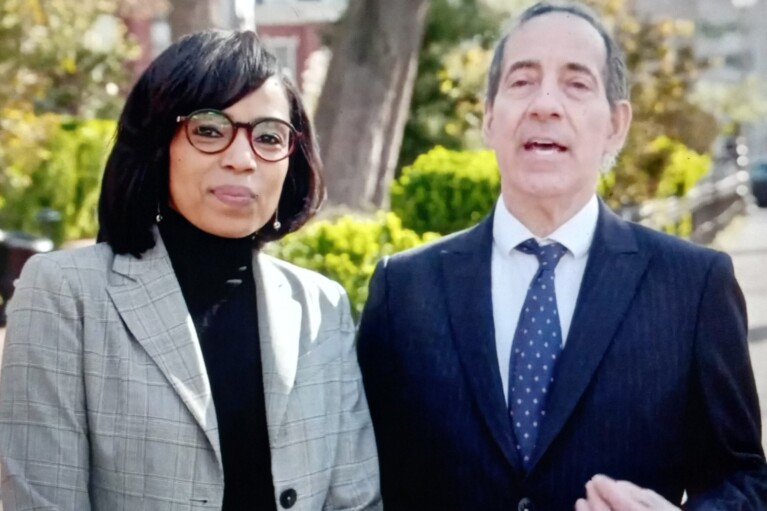Opinion: In Praise of Jamie Raskin, and Others Like Him, This Stonewall Anniversary

As I prepare to travel back home to New York for the 50th anniversary of the Stonewall Uprising this weekend, I’m reading the preparatory essays on the occasion in The New York Times and elsewhere on social media.
I’ve been struck by the narratives focusing on the noble oppressed who rose up and sparked a revolution, and I’ve noticed how those narratives have been constrained by today’s culture.
The people being highlighted are the choices of those with access and pull today. They are probably not the folks who would be chosen by the veterans who were present, or even the veterans who are still alive. More importantly, the focus is more on the origin of the event, a moment lost in legend as there was little reportage at the time and limited visual record as well.
The historians and veterans generally agree that it’s nearly impossible to get at the truth today. But whether or not Stormé DeLarverie sparked the resistance with her words or not, and who was actually present in the bar that night and next, what was most important was what came shortly thereafter. Those follow-up actions are what created the movement we celebrate today.
Sunday morning I discovered a Times essay by professor of philosophy Kwame Appiah. Professor Appiah highlighted the acts of a Welsh member of the House of Commons, Leo Abse, back in 1967, which lead to the decriminalization of homosexuality in England and Wales.
I had never heard of Mr. Abse, or his success, but Appiah’s point was in balancing the “Spartacus” narratives we so love with a reminder that the inside game is just as, if not more, important, than the outside one.
He framed this by contrasting “allyship,” a theme and now buzzword of the LGBTQ movement, with the concept of “alliances.” Both words have the same root, but there is a real difference between the two.
Allies are those cis straight folks who show up at Pride and Lobby Days and flesh out a movement run by and for a small minority of the population. They are absolutely essential to success, and it is critical to recognize and celebrate them.
But alliances are different.
Alliances include those straight cisgender folks who are truly committed to the cause, and without whom little progress would have been made. Leo Abse is one example, and as a cis, straight, white, Jewish, Welsh man, he’s unlikely to be noticed today.
I can, however, point to another such man, who qualifies like Abse, except that he’s not Welsh. He’s my congressman, Jamie Raskin, but his story for these purposes begins when he was a Maryland state senator from a nearby district. He, along with Del. Joseline Peña-Melnyk, were the passionate forces behind the Maryland gender identity bill as it slogged its way to passage from 2007 to 2014.
Sen. Raskin began his first political campaign in 2006 telling everyone he stood for marriage equality because it was at the moral center even if not yet at the political center.
Over the next six years he and his committed colleagues, along with the community, made it the political center, too. When he and I got to know each other he also committed to supporting the gender identity bill, and by the time of the passage of marriage equality in 2012 followed Del. Peña-Melnyk’s lead in support of trans anti-discrimination. She was a great role model, sitting in the Senate president’s office to demand he take up the legislation – even though she was a cis, straight, Afro-Dominican, Catholic mother. She couldn’t check any of the identity boxes for the queer movement, but she was a true colleague and friend, and was committed to just doing the right thing.
In 2012, Sen. Raskin and I managed to box in the Senate president and get him to commit to allowing a floor vote if we could get the bill out of the Judicial Proceedings Committee. That committee had been the bill’s graveyard, and not because of its Republican members. No, it was a Democratic majority with three Dems killing the bill year after year. When marriage had the floor, gender identity was a distant second. But once marriage passed, my team and I recruited colleagues and built the alliances that flipped that committee.
They included Darrell Carrington, who lobbied Sen. Anthony Muse; Michael Lore, who lobbied his boss, retiring Sen. Norman Stone; and, most importantly, Jamie Raskin, who lobbied his “bro,” James Brochin. There were reasons why each of these men opposed the bill; we learned those reasons, and then by playing the political game we helped them see the light.
The bill passed, with all Democratic votes, out of committee in 2014, and then rather easily became law. But it wouldn’t have happened just because we wanted it to happen, or because any of us were persuasive about our personal histories.
It happened as a result of those alliances, and the work of our non-queer friends and colleagues, who did the hard labor and often risked their own careers to advance civil rights. It happens repeatedly, in state after state, and cities and counties across the country.
The weekend of Stonewall in 1969 the mobs of people who gathered when they heard something was up managed to form the first queer political action group, the Gay Liberation Front. They turned that catalyst into a powerful exothermic reaction which has fueled our movement since then, demanding the best of our neighbors and those whom we elect. The last 50 years have shown us the fruit of that spark.
This anniversary let’s remember and honor them all.
–DANA BEYER
The writer is executive director of Gender Rights Maryland, a civil rights and advocacy organization serving Maryland’s transgender community.
Did someone forward this to you?
Get your own daily morning news roundup in your inbox. Free. Sign up here.




 Creative Commons Attribution
Creative Commons Attribution